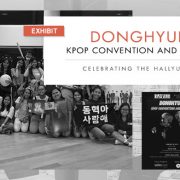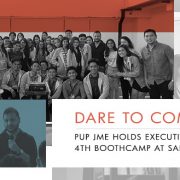Questions To Ask Your New Found Friend: Making Conversations
So you’ve recently joined your very first coworking space! You’ve gotten to know the work area – where the private offices are, the café and snack bar, as well as the usual schedule of the daily pool tournament. Despite of this, there’s one more thing left to do now that you’ve settled down; making friends.
We’ve all been in the awkward situation of being the new person – a fish out of water to simply put. Usually taking place at networking events, industry conferences, charity events, dinner parties, and other social-professional circumstances, we are often forced to build our rapport quickly. Like any other human being, we attempt breaking the silence by asking:
“So, what do you do?”
It’s a pretty standard question, we think to ourselves. A large majority of us – if not, I think almost everyone – believes that talking about one’s respective work is one of the best way to build a connection with someone we recently met. But in reality, it’s actually the opposite – in fact, it’s best to avoid this exact topic.
Multiplex Ties
According to experts from network science and psychology, humans tend to seek out relationships that has more than one context for connecting with another person. Known as multiplex ties among sociologist, these are connections that has overlapping roles or affiliations from different social contexts. For example, if a coworker happens to live in the same condominium as you or you both go to the same gyms, it means that you share a multiplex tie.
Experts believe that the reason we prefer these kinds of connections is because of the ideology that relationships built on multiplex ties tend to be richer, more trustworthy, and longer lasting. This can be observed in our daily lives: those coworkers who also happen to be actual friends is far more likely to be with you should one of you decide to change careers. This goes the other way too, those who have at least one actual friend at work are prone to liking their jobs more.
Analysis of Common Questions
Going back to the question “What do you do?” why shouldn’t we use this as an opener?
Say you’re already attending a work-related gathering or simply meeting a new individual under the context of work, it quickly sets a boundary in the conversation that he or she is simply a “work” contact. Though yes, there’s a possibility of discovering another commonality between the two of you but the chance of the conversation heading towards the aforementioned direction is slim to none.
So instead, consider starting with questions that are deliberately non-work related. Trust that the context of the conversation will eventually go back to work-related topics.
Here are some questions that you can use to start conversations with and will hopefully help you discover more commonalties and even gain you a new friend:
• What excites you right now?
This question opens up a wide range of possible answers. In addition to this, it gives the person the freedom to talk about work, kids, or simply anything that excites them.
• What are you looking forward to?
This works for the same reason mentioned earlier but is far more forward-looking than backward looking. This gives the person a bigger set of possible answers.
• What’s the best thing that happened to you this year?
Similar to the aforementioned two questions but is more backward-looking than forward. Regardless, it’s once again an open-ended question that gives others plentiful of answers to choose from.
• Where did you grow up?
Though this question dives into one’s backgrounds, it’s a much less assertive than asking where they came from. It allows them to answer with simple details of their childhood or engage the story of how they got where they are and what they’re doing.
• What do you do for fun?
As expected, this steers the discussion from work – unless of course they are lucky enough land a job that they’d be doing for fun. Yet in the end, it’s the type of question that will stir non-work answers.
These examples of open-ended questions help create multiplex ties in relationship – a concept that coworking spaces often cultivate. These shared offices are designed to create new connections in different circumstances and environments.













Leave a Reply
Want to join the discussion?Feel free to contribute!